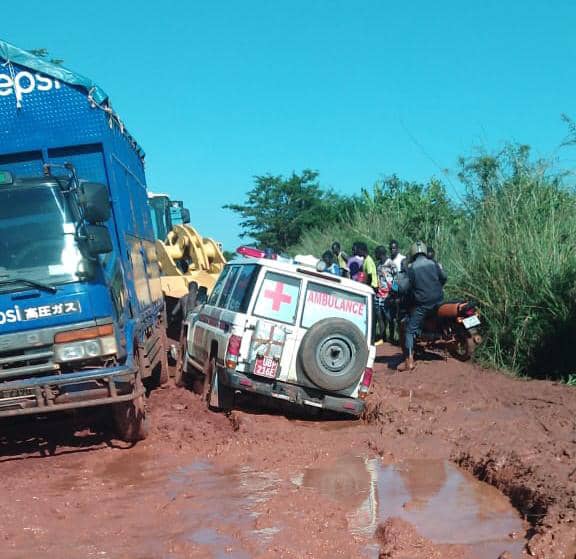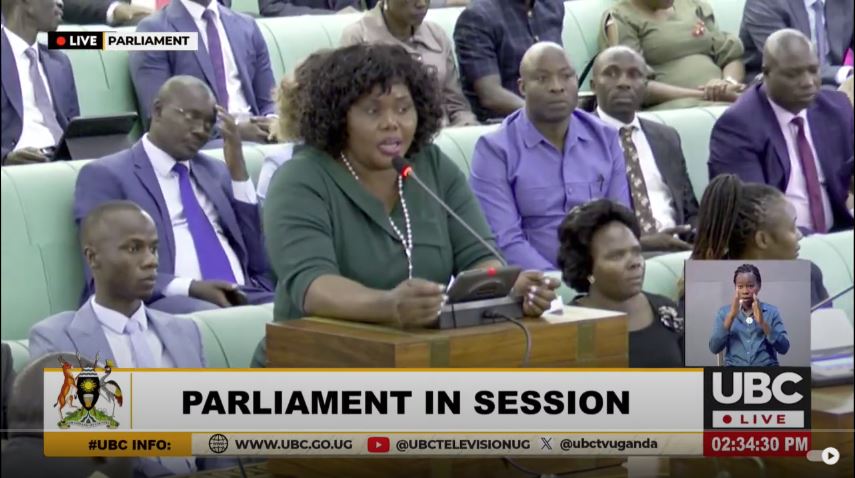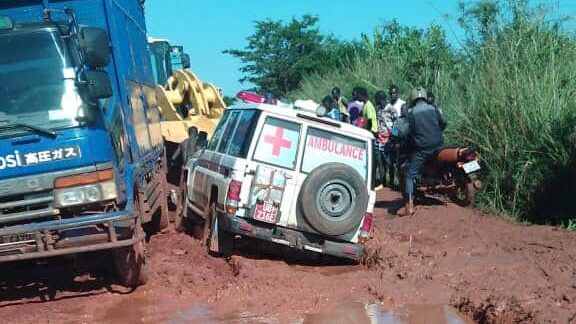
 Rapa FM Pader
Rapa FM Pader

 Rapa FM Pader
Rapa FM Pader
16 October 2024, 11:24

By Lakomekec Kinyera
The Lira-Kitgum Highway, one of Northern Uganda’s most vital transportation routes, has become a symbol of frustration and discontent for both lawmakers and residents. Stretching across key districts such as Pader, Kitgum, Lira, and Agago, this highway has long served as a critical artery for the movement of goods and people, fueling trade and economic activities in the region.
However, years of neglect and delayed rehabilitation have left the road in a deplorable state, characterised by deep potholes and uneven surfaces. These issues have disrupted daily life, hampered business operations, and sparked heated debates in Uganda’s Parliament.
The discontent surrounding the Lira-Kitgum Highway reflects a broader infrastructure problem that has plagued Uganda for years. Despite the government’s efforts to expand and construct new roads, maintenance of existing routes has lagged behind, leaving critical roadways in dire need of repair.
One of the most vocal advocates for immediate action has been Paska Menya Aciro, the Woman MP for Pader District. During a recent parliamentary session, Aciro expressed her frustration over the Ministry of Works and Transport’s failure to initiate crucial repairs on certain sections of the highway, particularly from Puranga subcounty to Acholibur. “Why has the government not commenced the much-needed work on this road?” Aciro demanded, highlighting the negative impact the delay has had on businesses and commuters.

Her comments underscored the growing frustration among MPs who have witnessed firsthand how the deteriorating highway is damaging the livelihoods of their constituents. Speaker of Parliament Anita Among amplified Aciro’s concerns, demanding a status report on the stalled maintenance works and updates on the construction of other planned roads. “This highway is a major trading route,” Among stated, emphasising its importance to Uganda’s economy. “We need a clear government plan to address the potholes,” she insisted.
Several MPs echoed these sentiments during the parliamentary session, lamenting the slow pace of rehabilitation and maintenance. They warned that unless swift action is taken, the economic fallout could be severe, particularly for Northern Uganda. “As the road continues to deteriorate, transportation costs rise, and goods are delayed, further straining businesses already grappling with logistical challenges,” one MP noted.
The condition of the road directly impacts residents, with vehicles frequently getting stuck, disrupting daily life and mobility for communities that depend on the highway for access to essential services and markets. Local leaders have also voiced their concerns. Tito Okello Brilliant, the Pajule Urban Council Chairperson, urged the government to prioritise the highway’s repairs, stating, “Temporary fixes will not suffice. This road is a lifeline for our economy and community.”
In response to the mounting pressure, Minister of State for Works and Transport Musa Ecweru acknowledged the challenges facing the highway’s rehabilitation. He admitted that while Uganda has made significant progress in road construction, having built over 6,000 kilometers of new roads, the country’s road maintenance efforts have been underfunded. “We have not put enough resources into maintaining these roads,” Ecweru stated. He assured Parliament that a directive had been issued to prioritise road maintenance in future cabinet meetings, but whether this will translate into immediate action remains to be seen.
The delayed rehabilitation of the Kitgum-Lira Highway is not an isolated issue but rather a symptom of the broader challenges facing Uganda’s infrastructure sector. The country has made significant strides in road construction, but without adequate maintenance, the benefits of these new roads are short-lived.
As Parliament awaits a detailed response from the government, the voices of frustration continue to grow louder. Residents of Pajule Town and other affected areas are demanding permanent repairs, not just temporary patches. Lawmakers, too, are calling for clear timelines and accountability from the Ministry of Works and Transport.
The road’s deterioration serves as a reminder that infrastructure development is not just about building new roads but also about maintaining those that already exist. Uganda’s economy depends on it.